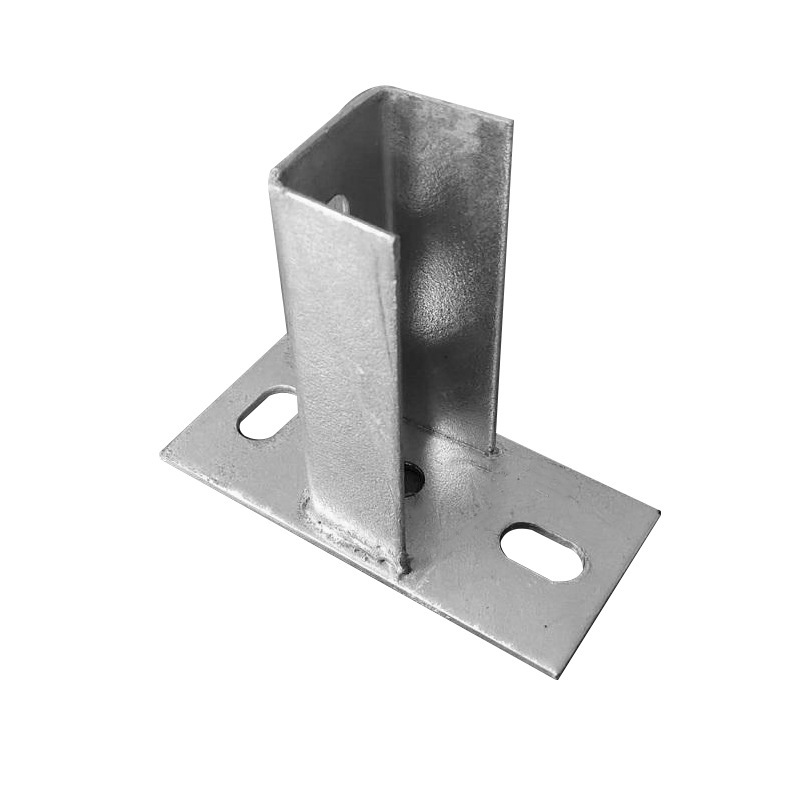

High-Quality M20 Washers for Reliable and Durable Applications in Various Industries
Nov . 27, 2024 10:12 Back to list
High-Quality M20 Washers for Reliable and Durable Applications in Various Industries
Exploring the Versatility of M20 Washers Essential Components in Engineering and Construction
In the vast realm of engineering and construction, even the smallest components can play a critical role in ensuring structural integrity and functionality. One such component that stands out due to its importance and versatility is the M20 washer. These seemingly simple, flat discs made from various materials are essential for a wide range of applications. This article will delve into the characteristics, benefits, and applications of M20 washers, illuminating their significance in various projects.
Understanding M20 Washers
The term M20 refers to the metric screw size, specifically indicating that the washer fits a bolt with a 20mm diameter. Washers serve various functions, including distributing load, preventing damage to surfaces, and acting as spacers. M20 washers are often used in conjunction with M20 bolts and nuts, allowing for a secure and stable fastening system.
Typically, M20 washers are made from steel, stainless steel, brass, or plastic, each material offering unique advantages suited to different environments. Steel washers provide robustness and strength, making them ideal for heavy-duty applications. Stainless steel washers, on the other hand, are resistant to corrosion and rust, which is critical in environments exposed to moisture. Brass washers offer excellent thermal conductivity, while plastic washers provide insulation against electrical conductivity.
The Importance of Functionality
One of the primary functionalities of M20 washers is load distribution. When a bolt or nut is tightened, the force exerted can lead to deformation of the material being fastened, especially under heavy loads. By placing a washer beneath the bolt head or nut, the load is spread out over a larger surface area, reducing the risk of damage. This function is particularly vital in construction applications, where materials like wood or soft metals may be prone to denting or stripping.
In addition to load distribution, M20 washers also help prevent the loosening of fasteners. Vibrations from machinery or environmental factors can cause nuts and bolts to loosen over time. When a washer is used, it acts as a buffer between the fastener and the surface, reducing the likelihood of movement. Some M20 washers even come with locking features, such as serrated edges or locking tabs, to enhance this stability further.
Applications Across Various Industries
The versatility of M20 washers makes them a valuable component across multiple industries. In the construction sector, they are commonly used in various structural applications, including bridges, buildings, and heavy machinery. Their ability to provide stability and strength ensures that critical components remain secured under stress.
m20 washers

In the automotive industry, M20 washers are employed in the assembly of vehicles, particularly in areas where engines and other critical parts generate significant vibrations. The use of these washers not only enhances safety but also maintains the performance and longevity of automotive components.
The manufacturing sector also benefits from M20 washers, especially in equipment assembly where precision fastening is essential. They help in maintaining tight tolerances and ensuring the reliability of machinery, which is vital for operational efficiency.
Choosing the Right M20 Washer
When selecting an M20 washer, several factors need to be considered
1. Material Depending on the application, the choice of material can significantly impact performance. For outdoor or wet environments, stainless steel is often preferred. For electrical insulation, plastic washers may be the best option.
2. Thickness The thickness of the washer can also affect load distribution and fit. Thicker washers provide more durability but may not be suitable for all applications, particularly where space is limited.
3. Coatings Washers may come with protective coatings that enhance corrosion resistance. Choosing the right coating can improve longevity, especially in harsh environments.
4. Type Different types of washers, such as flat, spring, or locking washers, may be more appropriate depending on specific needs.
Conclusion
M20 washers play a fundamental role in various applications across many industries, serving as critical components that ensure the integrity and functionality of fastened assemblies. With their ability to distribute loads, resist loosening, and provide durability, these washers are indispensable in modern engineering and construction. Understanding their functionalities, material properties, and appropriate applications is essential for anyone involved in building or manufacturing, ensuring safe and effective assembly practices. As industries continue to evolve, the robust performance and reliability of M20 washers will undoubtedly remain pivotal in maintaining structural integrity and mechanical efficiency.
Latest news
-
High-Strength Hot Dip Galvanized Bolts - Hebei Longze | Corrosion Resistance, Customization
NewsJul.30,2025
-
Hot Dip Galvanized Bolts-Hebei Longze|Corrosion Resistance&High Strength
NewsJul.30,2025
-
High-Strength Hot-Dip Galvanized Bolts-Hebei Longze|Corrosion Resistance&High Strength
NewsJul.30,2025
-
Hot Dip Galvanized Bolts-Hebei Longze|Corrosion Resistance&High Strength
NewsJul.30,2025
-
Hot Dip Galvanized Bolts - Hebei Longze | Corrosion Resistance, High Strength
NewsJul.30,2025
-
High-Strength Hot Dip Galvanized Bolts-Hebei Longze|Corrosion Resistance, Grade 8.8
NewsJul.30,2025

